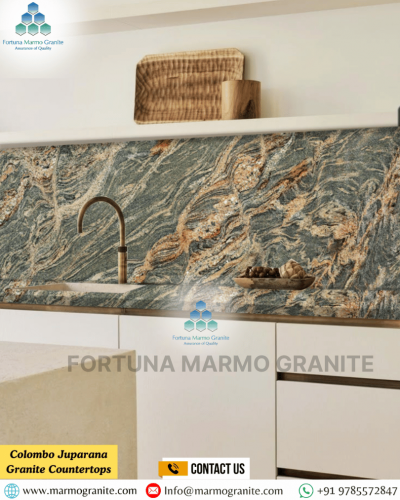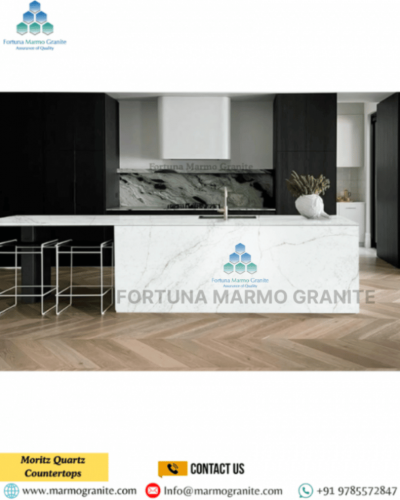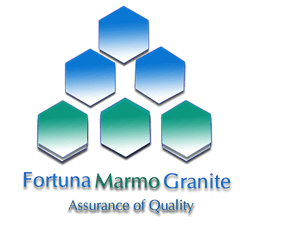Granite or Quartz? Uncovering the Best Countertop Choice for 2025 Kitchens
In today's evolving home design world, the kitchen functions as both a workspace and a gathering hub. Families cook, entertain, and create lasting memories here. As we move into 2025, homeowners have become more selective about the materials they bring into this important space. The debate between granite and quartz countertops remains front and center.
Choosing between these two surfaces goes beyond looks. Homeowners must weigh lifestyle needs, long-term maintenance, environmental impact, and overall investment. Granite, with its natural patterns, rugged charm, and heat resistance, attracts those who value authenticity and raw beauty.
Every slab is a geological masterpiece that adds unique character to any kitchen. The choice of Granite vs Quartz Countertops resonates with homeowners who want traditional luxury. Granite needs sealing from time to time, but it rewards you with exceptional durability and timeless elegance.
Quartz appeals to modern sensibilities. It offers uniform patterns, vibrant colors, and strong resistance to stains and bacteria. Its non-porous surface makes it especially practical for busy households. Engineered with advanced technology, quartz countertops deliver contemporary style with minimal upkeep.
Environmental impact also shapes the decision. Granite depends on responsible quarrying, while quartz combines natural minerals with synthetic resins. Cost, availability, resale value, and alignment with design trends further guide homeowners toward the right choice.
Durability and Performance: Built to Last
Granite: Heat Hero and Scratch Resistant Granite boasts exceptional durability. Formed under immense heat and pressure, it is incredibly heat-resistant, capable of handling hot pots and pans directly from the stove (up to 1200°F/650°C) without damage. It is also highly scratch-resistant, making it a reliable surface for daily food preparation. While generally tough, granite can be susceptible to chipping at edges or corners if subjected to excessive impact. Its porous nature means it requires periodic sealing (typically every 1-3 years) to prevent staining and moisture absorption.
Quartz: Stain Champion and Impact Resistant Quartz is non-porous due to its resin content, giving it strong resistance against stains, bacteria, and moisture. Spills remain on the surface, making cleanup quick and easy. The stone also provides excellent scratch and impact resistance, which helps prevent chips or cracks during everyday use.
Despite these strengths, quartz has some limitations with extreme heat. Resins can get damaged at temperatures above 300°F (150°C), so always use trivets or hot pads under hot cookware. Direct sunlight can also affect its appearance, causing discoloration or yellowing over time. For this reason, quartz performs best indoors rather than in outdoor kitchens or sun-filled spaces.
Maintenance and Care: A Matter of Lifestyle
Granite: The Sealing Requirement For granite, the key to longevity and stain resistance lies in proper sealing. While modern sealants are highly effective, this typically needs to be done every 1 to 2 years. Regular cleaning involves gentle soap and water, and acidic or oily spills should be wiped up promptly to prevent etching or staining, especially on lighter granite colors.
Quartz: Low-Maintenance Living Quartz is celebrated for its incredibly low maintenance. Its non-porous surface means it never requires sealing. Daily cleaning simply involves wiping with mild soap and water. This makes quartz a highly appealing option for busy households seeking a hassle-free countertop solution.
Cost Considerations: Budgeting for Your Dream Kitchen
Granite: Value with Variety Granite's pricing typically ranges from approximately $95 to $225 per square foot installed. While basic options can be more cost-effective, exotic or rare granite slabs with unique patterns can push the price higher. The overall cost can also be influenced by the intricacy of cuts, edge profiles, and the number of slabs required.
Quartz: Consistent Pricing with Premium Options Quartz countertops generally fall within the range of $105 to $185 per square foot installed. While its pricing tends to be more predictable and consistent, premium quartz brands or those with intricate designs can be more expensive. The engineered nature of quartz can sometimes lead to easier fabrication and potentially shorter installation times, as patterns are uniform and matching seams is simpler.
Environmental Impact: A Growing Concern
Granite: Natural, But with a Footprint Granite is a natural material, quarried directly from the earth. Its inherent sustainability lies in its durability and longevity, reducing the need for replacement. However, the quarrying process and transportation of heavy slabs can have an environmental impact.
Quartz: Engineered with a Conscious While quartz is an engineered product, many manufacturers are making strides in sustainability. This includes incorporating recycled materials into their compositions and utilizing eco-friendly resins. The debate continues regarding the overall environmental impact, as granite is a naturally occurring material, while quartz involves industrial processes. However, the use of recycled content in quartz is a significant step towards a more sustainable option.
Resale Value: An Investment in Your Home
Granite: Established Resale Appeal Granite has long been regarded as a highly desirable feature in homes, and strong appeal continues to be held for buyers. Its natural beauty and durability are perceived as marks of quality and luxury, and a property's resale value is positively influenced. In 2025, granite is still considered a solid investment, with a resale value of around 25% of its retail cost (excluding installation) being suggested by estimates.
Quartz: Gaining Ground Historically, quartz's resale value wasn't as high as granite's, but this trend is rapidly evolving. The growing appreciation for quartz's low maintenance, durability, and ever-improving aesthetics is closing the gap. As more homeowners experience the benefits of quartz, its perceived value and contribution to resale are steadily increasing. Its modern appeal and practicality are proving to be increasingly attractive to potential buyers.
2025 Trends: What's Hot in Countertops
Bold Colors and Dramatic Veining: Homeowners now choose granite and quartz with expressive patterns and bold colors, making them central design elements.
Earthy Tones and Organic Patterns: Designers highlight a strong return to nature-inspired palettes and organic patterns in both materials.
Innovative Finishes: Homeowners prefer finishes beyond the traditional polished look, with honed (matte), leathered, and brushed surfaces gaining popularity for their sophisticated and tactile appeal.
Waterfall Countertops: Many kitchens feature dramatic waterfall countertops, where the material flows seamlessly down the sides of an island, making granite and quartz highly sought after.
Mixed Materials: More homeowners combine granite or quartz with wood, metal, and other materials to create personalized and unique kitchen aesthetics.
Sustainability: Homeowners increasingly demand responsibly sourced granite and quartz, along with eco-friendly manufacturing processes, to align with green living goals.
Conclusion
Indian Granite Supplier Choosing between granite and quartz for your kitchen countertop in 2025 is more than a design decision. It is also a long-term investment in the style, function, and value of your home. Granite, with its natural elegance, rich veining, and unique color variations, appeals to homeowners who appreciate authentic beauty and a connection to nature.
Its heat resistance and hardness make it a reliable choice for traditional and rustic kitchens. Granite vs Quartz Countertops remain popular in modern homes too, thanks to their timeless appeal. Quartz, by contrast, delivers a sleek, contemporary look. It offers uniform patterns, a wide range of colors, and excellent resistance to stains and scratches.
Granite vs Quartz Countertops, As an engineered stone, quartz is non-porous. This feature means it does not need sealing and is simple to clean. That makes quartz perfect for high-traffic kitchens and families who want convenience without sacrificing style.
Granite vs Quartz Countertops, At Fortuna Marmo Granite, we recognize that every homeowner's needs are unique, and that's why we offer a vast and carefully curated selection of both granite and quartz slabs. With years of experience in exporting high-quality stone products globally, our team is committed to helping you find the ideal material that complements your kitchen layout, personal taste, and lifestyle. Whether you lean toward the bold, natural drama of granite or the sleek, low-maintenance appeal of quartz, Fortuna Marmo Granite delivers slabs that reflect the highest standards of craftsmanship, sustainability, and design excellence. We help you transform your kitchen into a space that blends lasting beauty with everyday practicality. At Fortuna Marmo Granite, your dream countertop begins with quality you can trust.



